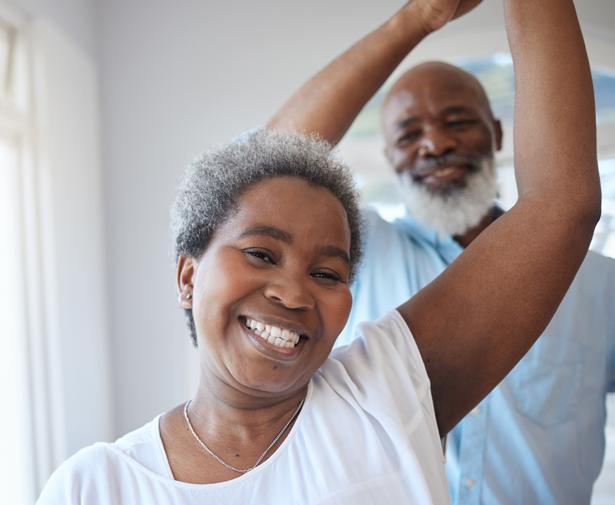Serving those who served
FOR OUR NATION’S



As one of the more than 18 million military veterans in the U.S., I am honored to welcome you to this special issue of SYNERGY HomeCare’s magazine dedicated to those who served.
I served in the Army many years ago and have since pursued a career in federal military physical and behavioral health with a focus on well-being. I can tell you from my personal and professional experience that many veterans have a hard time prioritizing their well-being. As members of the military, we are deeply proud to serve, and sometimes that makes us too proud to ask for help.
Being on the receiving end of care is not a sign of weakness, but a privilege that veterans have earned through their service. Today, more than 5.5 million military family members—often referred to as Hidden Heroes—are caring for members of our military and veterans.
Because many of us leave the military and pursue civilian careers, we may forget about our VA benefits. We may not know that there are a number of VA programs that cover the cost of home care to help us with things that may have become more challenging for us to do on our own. These can include activities of daily living like dressing, bathing, eating, mobility, memory care, or other support for disability or illness. Some VA benefits also cover the cost of respite care to provide relief for family caregivers, many of whom are juggling competing responsibilities.
SYNERGY HomeCare has worked diligently to position itself as a trusted partner in the care of our country’s veterans and active military members with the vast majority of its home care agencies contracted

with the VA, making it easy for you to use the VA home care benefits you have earned.

I invite you to learn more about how SYNERGY HomeCare can provide compassionate and personalized support to military and veteran families on the pages that follow.

In service, Steve Scroggs, Ph.D. Lieutenant Colonel (Ret.), U.S. Army, Infantry
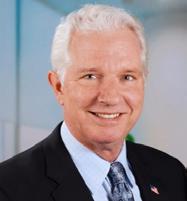
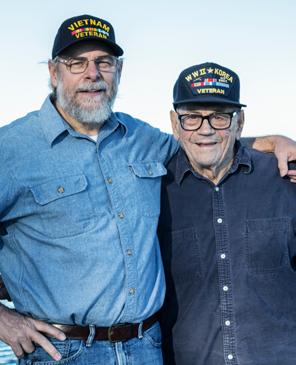
A retired Army Infantry officer and veteran, Dr. Scroggs is President of the HighThrive Foundation, a non-profit organization offering a practical and personalized approach to behavioral health that centers around the concept of well-being. He serves on the Board of Governors of the National Military Family Association. He previously worked on DOD and VA policies for a senior member of Congress and later represented the Secretary of the Army on national security program issues to Capitol Hill.

Did you know that as a veteran, you may be eligible for benefits that help cover the expense of home care services? If you or your spouse need assistance with activities of daily living like dressing, bathing, eating or mobility, memory care, or other support for disability or illness, your Veteran Affairs benefits may cover services like personal care, memory care and disability support.
Several VA benefits may cover the expense of home care, and, in many cases, veterans are eligible for more than one program.
Here are five tips veterans can take to connect with a home care provider:
Not all veterans have access to the same benefits. You’ll need to inquire about what programs you’re eligible for in order to make sure you take the path that’s best for you. The VA website, https://www.va.gov, provides information on the various benefits
and how to determine if you’re eligible. Look through these descriptions and get a general understanding of what you might be eligible for.
Here, you can get registered to receive VA benefits. Tell the VA doctor your reason for visiting and what you’re trying to accomplish.
Even though you only need to spend a small amount of time at the VA clinic to get the information you want, it’s still best to develop a personal relationship with at least one doctor there. Stay in touch and keep them up to date with your current situation.
Navigating your VA benefits can be daunting, which is why there are a number of outside organizations designed to help veterans navigate their benefits. Foundations like the Wounded Warrior Project, the Veterans of Foreign Wars organization,
AidandAttendance.com and other consultation services exist to make the process a little easier. Programs like VetAssist and AVCC (American Veterans Care Connection) are also specifically intended to help veterans apply for the Aid and Attendance pension.
SYNERGY HomeCare is a good option; many of our agencies are contracted with the VA, making it easy to use your VA benefits to get the quality in-home support you deserve. Several SYNERGY HomeCare locations are also owned and operated by veterans themselves, who are eager to serve those who served.
Look for three qualities from a home care provider: They should be passionate, offer personalized care and be your partner in your care. Finding the right care provider is a critical step and you should never settle for less than what you deserve.
As a veteran, you may be entitled to home care services that can enhance your quality of life. Talk to a SYNERGY HomeCare representative today. We are honored to serve you.
Department of Veterans Affairs (VA) va.gov l (800) 698-2411
The VA is the federal agency responsible for providing VA benefits and services to eligible U.S. military veterans and family members. Visit va.gov for more information about the Aid and Attendance benefit and Housebound allowance well as the Homemaker and Home Health Aide Care benefit.
caregiver.va.gov l (855) 260-3274
The VA Caregiver Support Program offers clinical services to caregivers of eligible and covered veterans enrolled in the VA health care system. The program’s mission is to promote the health and well-being of family caregivers who care for our nation’s veterans, through education, resources, support and services.
community members.
“What I learned during my years of service to veterans is the need to treat them with dignity and respect. Being able to come from a place of understanding and empathy was invaluable,” Lucille said. “I didn’t get to experience the military service career I expected and hoped for, but I was able to pivot my career path to help veterans in meaningful ways. Even though I am not a soldier, I can still be of service.”
“We truly connect with the idea of providing care that moves you–care that keeps you moving forward in your life and that moves you emotionally,” Henry said. ”Caring and serving are in our DNA and we are thrilled to be able to apply them both in our new endeavor.”


In honor of Veterans Day, SYNERGY HomeCare is showcasing inspirational stories of those who served—from our Franchise Partners to our clients.
Meanwhile, Henry became a mortgage banker. Two years ago, they started thinking about going into business for themselves. With their passion for serving others and their personal experience caregiving for aging loved ones, they immediately knew what their next step would be. The home care field represented the perfect opportunity.
As co-owners of SYNERGY HomeCare of Port St. Lucie, Lucille and Henry are committed to aiding not only their fellow veterans, but any member of their community that may be in need.
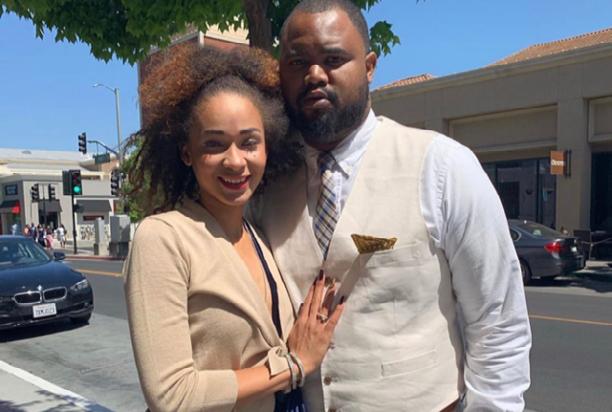 - LUCILLE MENARD
- LUCILLE MENARD
Lucille and Henry Menard, owners of SYNERGY HomeCare of Port St. Lucie, are U.S. Navy veterans with a family history of caregiving. Lucille grew up watching her mother provide personalized care as a hospice certified nursing assistant for 20 years, while Henry’s mother provided care for over a decade as a home health aide and child care educator. The duo describes their need to serve as being part of their DNA. Lucille and Henry joined the U.S. Navy in 2014 shortly after they were married.
Unfortunately, Lucille was injured during boot camp and was medically discharged a few months later. A year later, Henry was medically discharged as well. While there are many benefits available to military veterans, Lucille and Henry both found it challenging to understand exactly which ones applied to them and how to access them. Lucille eventually discovered CareerSource Broward, an organization dedicated to providing military veterans resources to secure long-term,
rewarding careers. Not only did Lucille and Henry receive services from CareerSource Broward, Lucille started working for them, helping veterans create resumes for their postmilitary job search. She also became involved with Operation Sacred Trust, a group that helps underserved homeless veterans apply for and receive VA benefits and social services. Lucille still has close ties with Operation Sacred Trust and CareerSource Broward, both of which allow her to fulfill the sense of duty she feels toward her fellow veterans and
“ What I learned during my years of service to veterans is the need to treat them with dignity and respect.
Being able to come from a place of understanding and empathy was invaluable .”MEET
f you’re one of the country’s more than 5.5 million Hidden Heroes—family members caring for veterans and members of our military—you know that caregiving is a full-time job. It’s probably one of the most challenging—and rewarding—roles you’ll ever have.
Whether you’re a military spouse caring for an injured service member, an adult child or sibling caring for a veteran parent or loved one, or a spouse caring for a veteran, you don’t have to do it alone. Support is available. And finding that support—for both you and your loved one—is vital so you can provide the care your loved one needs.
Take the initiative developing a strong support system for you and your loved one. Here’s where to start:

There are a number of service organizations that offer support and aid to service members, veterans, their families and caregivers. Contact your local VA office or Agency on Aging for more information about resources in your community. In addition,
HiddenHeroes.org provides a directory of hundreds of resources for military family caregivers.
The CSP offers clinical services to caregivers of eligible and covered veterans enrolled in the VA health care system. They also provide educational resources and support. There is a CSP Team Locator located at every VA location
Expand your support network by reaching out to friends, family, neighbors and other military families who understand what you’re experiencing. Don’t hesitate to ask for help. Oftentimes friends and family want to help but don’t know how and appreciate being asked. Go to caregiver.va.gov for more information.
Respite care provides short-term relief for the caregiver, giving a much-needed break. This can help ease caregiver stress, allowing you time to refresh and recharge.
In addition to providing assistance with daily activities, a professional caregiver can help with light housekeeping, errands and transportation, provide memory care and recovery support for illness, stroke or surgery. In many cases, veterans are eligible for benefits that help cover the expense of home care services.
Remember that members of the military are used to helping others and putting others’ needs ahead of their own, and it can be hard to be on the receiving end of service. At SYNERGY HomeCare, we understand that asking for help can be difficult, but it’s not a sign of weakness. We take pride in offering flexible respite care to military caregivers and adapting to each unique situation.
You may be a military caregiver if you do any of the following for a service member or veteran:
• Manage medication and medical appointments
• Provide emotional and physical support
• Assist in the care of a disabling wound, injury or illness
• Advocate for proper treatment and care
Source: HiddenHeroes.org
Shifting how we think about aging is an important step in not letting the “idea” of old keep us from living the way we want to live.
There’s no shame in using a golf cart or a caddy, playing nine holes or practicing your short game. You can even take the children in your life to play mini golf. There are so many benefits to engaging with the younger generation!
You may be familiar with the observation that people get so busy working “in” their business, they forget to work “on” their business. The same idea can apply to aging. You can simply pass the days getting older or you can work on your aging process while you are aging. Think about what you want aging to look like for YOU and go with that. Remember, you define aging; don’t allow aging to define you.
Your aging process reflects your active state of mind, not the number of candles on your birthday cake. Dr. Macie Smith shares these three steps to help you be more intentional about aging:
1. Make a list of the things you are passionate about.
2. Put a plan in place to pursue those passions.
s mindset the key to staying active as you grow older? SYNERGY HomeCare gerontologist Dr. Macie Smith explains why shifting how we think about aging is vital to staying active at any age.

As a society, we don’t embrace aging. In fact, we seem to do anything we can to resist it. But the reality is that aging is natural. It is an essential component of living. Accepting aging can go a long way in making the most of your entire life—not just the “young” years. Going one step further and being intentional about aging can make the difference between just existing and really living.
Unfortunately, coming to terms with aging is easier said than done. We have ingrained
ideas about what it means to get old. We go along with these ideas because we don’t give ourselves permission to think differently.
That brings us to mindset. Do we lose strength as we age? Sure. Do our laugh lines get more pronounced? If we keep laughing, they certainly do. Do we have to take some medications to keep our motor running smoothly? Probably. We need to view these developments as blessings some people don’t get to experience.
Shifting how we think about aging is an important step in not letting the “idea” of old keep us from living the way we want to live.
So you don’t have the stamina to play 18 holes of golf anymore. Do you still love golf? Then think differently about how to keep playing.
Dr. Macie P. Smith is a licensed gerontology social worker who is focused on helping families support their aging loved ones through long-term care. Specifically, Dr. Smith educates caregivers on how to care for seniors with dementia. She is an advocate for specialized care and assists others in finding a way to provide a better quality of life for individuals with Alzheimer’s or dementia. Dr. Smith has dedicated over 22 years of her life working in gerontology and assisting families in finding personalized solutions for dementia care. For more articles by Dr. Macie Smith, go to https://synergyhomecare.com/blog/.
3. Journal about the experience so you can be aware of how you are defining aging for you.
For more great information from Dr. Macie Smith, check out her new SYNERGY HomeCare series “What to Expect As Your Loved One Ages.” She addresses topics like caregiver stress, fall prevention, caring for a loved one with dementia and so much more!
Scan the code to view more from Dr. Macie.

Felix Gbee (pronounced Bay) met Chester “Chet” in 2021, it was the start of a great friendship.
Chet is a retired Army Colonel who served in leadership positions around the world including Germany, Ethiopia and Vietnam as well as in Washington, D.C. Upon his retirement in 1984 from the uniformed Army, he served in federal executive roles until 1997, when he retired from civil service. He and his wife Leona have been married for almost 65 years.
ready for bed, as well as help getting to the bathroom in the middle of the night.
As someone who was very active, this lack of mobility affected Chet’s mood and morale, but his spirits are lifted thanks to the companionship his caregivers provide. “They are top-notch,” affirmed Chet.
A few years ago, Chet’s daughter Laura started to notice that he needed some help. She and her husband Oliver and their son Jake live across the street from her parents, and over the years they noticed that Chet, who is 90, was needing more and more assistance from his wife. Laura reached out to SYNERGY HomeCare to learn about how in-home care could help Chet and Leona focus more on their relationship as husband and wife than as caregiver and recipient. That’s when they met Felix.
Felix is also very involved in Chet’s care. A veteran himself—Felix joined the Army in 2002 and served several tours in Iraq as a Platoon Sergeant before serving in the Army Reserves—he is passionate about caring for veterans.
“Felix is in constant communication with the entire family and responds instantly no matter when I reach out,” said Laura. “And the caregivers have been wonderful: so punctual, so kind, so knowledgeable. They all feel like an extended family and they have my complete trust. We are truly fortunate to have them in our lives!”
you need a little help or a lot, you can
“As you can imagine, it was tough for Leona to relinquish any care for her husband, but she came to the realization that it was time to accept help,” recalled Laura.
According to Laura, Felix’s experience in the Army is an invaluable bonus as he is sensitive to her father’s persona and mindset as a former member of the military. Chet regularly remarks how privileged he feels that the owner of the company comes to visit and see how things are going.
Felix arranged for a caregiver to come for a few hours each day to help, but when an infection landed Chet in the hospital, he lost strength in his legs and needed help walking. Chet now receives around-the-clock care from SYNERGY HomeCare. The overnight care is especially important so that Chet has assistance getting
“I’m passionate about serving veterans because I know it can be hard for us to ask for help,” said Felix. “I joined the Army to make a difference and my new career in home care allows me to continue to make a difference. It’s incredibly rewarding.”
on SYNERGY HomeCare. From a few hours a day to around-the-clock care, here are some of the many ways we proudly serve veterans:

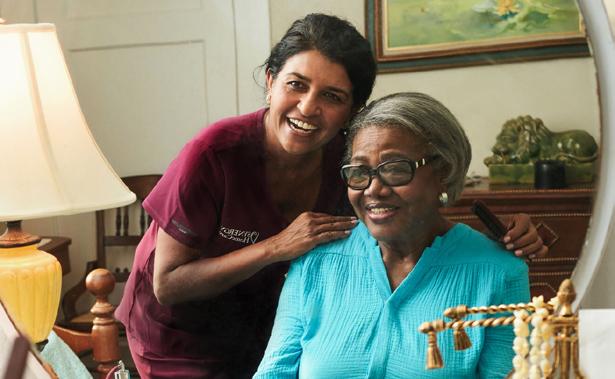
establish reasonable expectations and stay in control of their daily activities.
Limiting change also applies to the living environment. Stay on top of clutter and keep decorations and furniture as familiar as possible. A simple yet calming environment can go a long way in preserving the wellbeing of someone living with Alzheimer’s.
Families often assume an Alzheimer’s diagnosis means they have to quickly move their loved one out of their home and into a facility that provides continuous monitoring. Today, remaining at home with appropriate support is a viable alternative, and the continuity and stability it provides makes it a beneficial option, too. If you can’t find the time to assist a loved one yourself, professional in-home care services are a great resource. Home care services can allow your loved one to age in the place they know best, while also ensuring they receive proper care and attention.
Research shows that when you take a person-centered approach to caring for someone with Alzheimer’s, it enhances quality of life not only for the person living with Alzheimer’s, but for the entire family as well.
A person-centered approach means focusing on the individual—not their condition. It supports the unique needs of the person receiving care so that they can take part in the things they enjoy.
While there’s no one-size-fits all approach to caring for a loved one with Alzheimer’s, the following guiding principles to person-centered care can help optimize quality of life for both you and your loved one.

Think about the activities that keep your loved one engaged and try to find hobbies that relate to it. Activities as simple as reading or bird watching can double as great methods of maintaining a highly functioning memory. Encourage your loved one to keep pursuing these passions and display interest in these activities yourself.
Repetition is key to strengthening memory at any age, and for that reason, it’s important to limit sudden changes in the lives of people living with Alzheimer’s. Try to establish or stick to a routine that is as similar to the person’s pre-diagnosis habits as possible. It helps them feel comfortable,
Most people with Alzheimer’s are still highly functioning early in their diagnosis, so allowing them to maintain their independence is important in building trust in your relationship. Let them do the things they love and that they are familiar with, while gradually easing into a more hands-on role in their lives.
It’s important to maintain a sense of independence as long as possible. While you can assist with some things, allow your loved ones to make decisions for themselves so they don’t feel like they’re now dependent on the people around them. Encourage them to dress and wash themselves, listen to their suggestions for meals and be supportive when they conquer a task that might have been challenging.
When your loved one has been diagnosed with Alzheimer’s disease or other form of dementia, understanding the condition and identifying the right resources and support can leave you feeling overwhelmed and stressed.
Rest assured, SYNERGY HomeCare is here to help you navigate through uncharted waters and create peace of mind in caring for your loved one.
Our person-centered Memory Care program focuses on your loved one’s unique needs. We also provide education and support to help family members meet the care needs of their loved one while also caring for themselves.
Call us to speak to a Memory Care Specialist today or scan the QR code for more information, including a link to our FREE Memory Care guide.
Visit our Memory Care Program to learn more.
